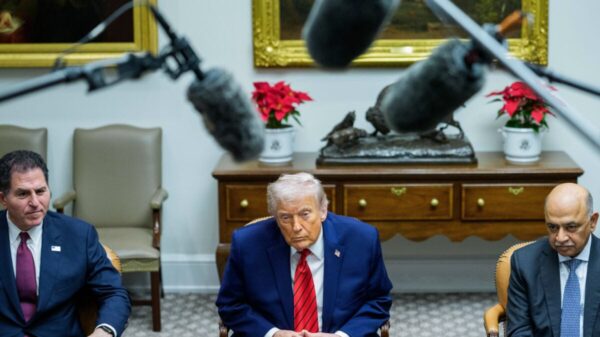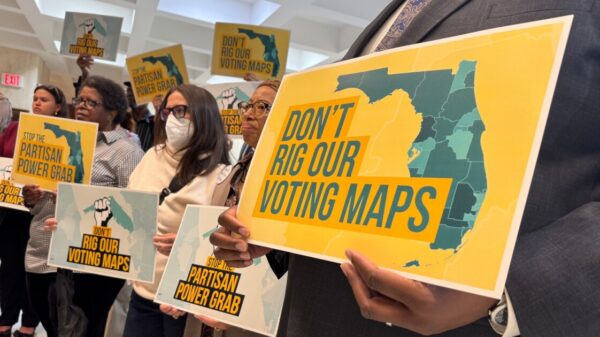As discussions surrounding the ongoing federal government shutdown intensify, Representative Michael Baumgartner has voiced his disappointment regarding the situation, highlighting the immediate operational challenges it presents for various services and workers. He emphasized that “there really are no winners in a government shutdown,” a sentiment that reflects the wider sentiment of frustration felt across the political spectrum.
During a recent interview, Baumgartner pointed out the precarious position of essential workers, specifically mentioning air-traffic controllers and TSA agents who are currently working without pay. He warned that the Supplemental Nutrition Assistance Program (SNAP) benefit payments are also at risk, further exacerbating the hardships faced by many Americans during the shutdown.
In a bid to find a solution, Baumgartner aligned himself with his Republican colleagues by voting to maintain current spending levels, aiming to keep the government operational while longer budget negotiations take place. This approach underscores the urgent need for bipartisan cooperation to resolve the stalemate that has led to the current impasse.
Baumgartner made a personal commitment by choosing not to accept his congressional paycheck during the shutdown, stating, “I have made the decision not to take a paycheck during the government shutdown… if our troops are at risk of not getting paid, then I don’t want to get paid.” This decision was prompted by the president’s efforts to ensure that military personnel are compensated, while many civilian workers remain unpaid and uncertain about their financial future.
Highlighting the severity of the situation, Baumgartner noted that the current shutdown is already the longest in the nation’s history. He expressed hope that negotiations would lead to a swift reopening of the government, urging his colleagues to reach an agreement that keeps essential services running smoothly.
This ongoing federal government shutdown not only impacts federal employees and services but also poses significant challenges for the broader economy. As critical functions stall, the repercussions could ripple throughout various sectors, affecting everything from air travel to food assistance programs. The urgency for resolution has never been more pressing, as constituents and stakeholders await legislative action to restore normalcy and support to those impacted.
As the situation continues to evolve, the focus remains on collaboration and compromise within Congress. The potential for agreements that can lead to the reopening of government services is essential not only for the workers directly affected but for the overall stability of the nation’s economy. The pressing need for practical solutions could pave the way for a more unified approach to governance as the discussions progress.
See also KERI Symposium Reveals Need for New AI Competition Policies to Foster Innovation and Fairness
KERI Symposium Reveals Need for New AI Competition Policies to Foster Innovation and Fairness Paul McCartney Releases Silent Track to Protest AI Copyright Theft, Joins Industry Campaign
Paul McCartney Releases Silent Track to Protest AI Copyright Theft, Joins Industry Campaign Australian Government Urges AI Strategy to Boost Adoption and Trust by 2028
Australian Government Urges AI Strategy to Boost Adoption and Trust by 2028 Cohere Secures $240M for Canadian AI Data Center Amid Concerns Over U.S. Partnerships
Cohere Secures $240M for Canadian AI Data Center Amid Concerns Over U.S. Partnerships Ghana Government Launches Free 12-Month AI Access for Students with Google Partnership
Ghana Government Launches Free 12-Month AI Access for Students with Google Partnership











































































